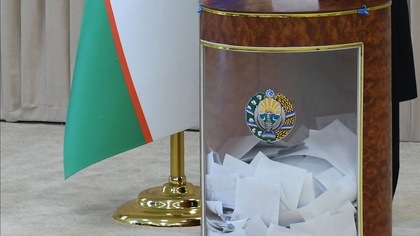As Uzbekistan gears up for its parliamentary elections, political parties are putting forth their visions for how the country should be governed. Each party’s stance reflects its unique approach to state intervention, economic development, social policies, and national identity. But do these approaches address the needs of modern Uzbekistan, or are they simply echoing old rhetoric in new times?
Uzbekistan’s political scene features a colorful spectrum of parties — from the left-leaning Adolat and Xalq Demokratik Partiyasi (XDP) to the more centrist Ecological Party and the conservative Milliy Tiklanish, and finally to the economically liberal O‘zLiDeP. While each of these parties offers a distinctive take on governance, the upcoming elections will serve as a litmus test for how well their promises align with the realities of today’s Uzbekistan.
Adolat: The Welfare State That Dreams Big
Adolat positions itself as the champion of social justice, advocating for a governance model that reduces inequality, improves public services, and ensures fair wealth distribution. Their platform is clear: a strong state that actively intervenes to protect vulnerable groups — the elderly, the disabled, and low-income families. They propose progressive taxation and robust funding for healthcare, education, and social welfare.
This is a classic welfare state model, reminiscent of Western European social democracies. Adolat’s intentions are noble, but the question remains: can they afford it? While progressive taxation can indeed fund social programs, it could also deter the private investment needed to spur economic growth. Uzbekistan’s economy is still developing, and relying too heavily on state intervention might slow down that progress. Adolat should be careful not to promise more than it can deliver. A balanced approach that integrates market-friendly policies with social welfare might prove to be a smarter strategy in the long run.
XDP: A Laser Focus on the Vulnerable
If Adolat’s approach can be described as broad-based, XDP’s governance vision is more targeted. They, too, advocate for social justice, but their focus is explicitly on the most vulnerable groups — pensioners, the unemployed, and socially marginalized communities. They promise increased pensions, more affordable housing, and expanded public healthcare.
However, by narrowing their focus, XDP risks ignoring broader economic growth strategies. Heavy state intervention might sound appealing, but it also risks creating a culture of dependency, where the state is seen as the sole provider of solutions. Moreover, such a model could lead to inefficiencies and bureaucratic inertia.
XDP would do well to diversify its economic agenda, encouraging private sector initiatives that create sustainable jobs. It’s one thing to protect the vulnerable, but empowering them through employment opportunities would be a more forward-looking approach.
Ecological Party: Green is Good, But is it Enough?
The Ecological Party is something of an outlier in Uzbek politics, and that’s a good thing. While the other parties focus on social or economic issues, the Ecological Party brings environmental sustainability to the forefront. Their governance model is all about harmonizing economic growth with ecological preservation — a challenging, yet increasingly necessary, goal.
In a country like Uzbekistan, where agriculture plays a massive role, issues like water scarcity and soil degradation are critical. The Ecological Party’s push for renewable energy and green technologies could lead to long-term benefits. But their platform raises a question: is it enough to drive broader economic development?
Environmental sustainability is vital, but it must be part of a broader economic strategy. The Ecological Party should expand its platform to include policies that support green industries, tech innovation, and eco-tourism. It’s not just about saving the environment; it’s about creating an economy that thrives by doing so.
Milliy Tiklanish: Pride, Patriotism, and Preservation
Milliy Tiklanish embodies a blend of nationalism, cultural preservation, and conservatism. Their governance approach emphasizes strengthening national identity, preserving Uzbekistan’s cultural heritage, and promoting traditional family values. In their view, the state should play a central role in fostering national pride while modernizing the country without sacrificing its core identity.
Yet, while patriotism is commendable, a governance model that leans too heavily on nationalism risks isolationism. Protecting cultural values is important, but so is adapting to global trends that bring innovation and development. Milliy Tiklanish’s conservative economic stance, which encourages private enterprise but maintains state intervention to safeguard national interests, is a delicate balance to strike.
Milliy Tiklanish would benefit from a more pragmatic approach that embraces global cooperation and foreign investment. After all, you can’t build a strong national identity without a robust, competitive economy to back it up.
O‘zLiDeP: Advocates for a Free Market Economy
O‘zLiDeP, Uzbekistan’s Liberal Democratic Party, has made it clear that they see the private sector as the key to national prosperity. Their governance model advocates for economic liberalization, reduced state intervention, and a regulatory environment that supports entrepreneurship. For O‘zLiDeP, economic freedom is the path to individual liberty and national success.
This approach has its merits. Encouraging investment and cutting red tape can certainly drive economic growth. But an over-reliance on the free market could lead to problems such as income inequality and a lack of social safety nets. It’s one thing to encourage businesses; it’s another to ignore the social issues that might arise from unfettered capitalism.
O‘zLiDeP should remember that a prosperous economy isn’t just about growth; it’s also about equity. Supporting responsible corporate practices, investing in public services, and ensuring fair labor conditions will create a more balanced and sustainable economy.
Conclusion: The Need for a Balanced, Forward-Thinking Vision
As voters prepare to cast their ballots, they are presented with a spectrum of governance approaches that reflect the diverse political landscape of Uzbekistan. From the welfare-focused strategies of Adolat and XDP to the environmentally conscious plans of the Ecological Party, and from the nationalistic vision of Milliy Tiklanish to the market-driven policies of O‘zLiDeP, the choices are as varied as they are significant.
Each of these parties offers something valuable, but none of them has the complete answer. Uzbekistan’s future lies not in adopting one ideology over another, but in finding a way to integrate these diverse perspectives into a cohesive, balanced, and forward-thinking strategy.
The party that can effectively blend economic growth with social welfare, environmental sustainability, and cultural preservation will be the one that leads Uzbekistan to a prosperous and stable future.
Center for Progressive Reforms














